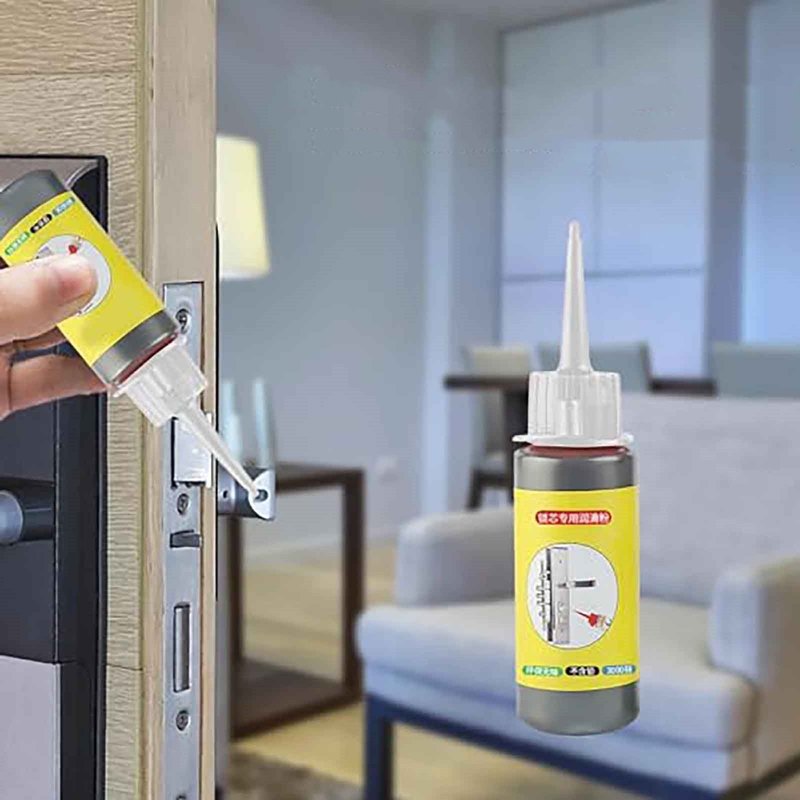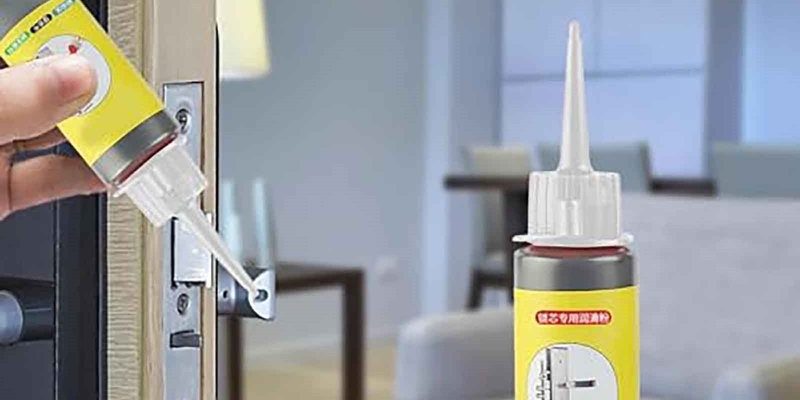
So, if you’re sitting there wondering which type to pick for your door latch, you’re not alone. Many people find themselves stuck with this question. Here’s the thing: the right choice can make a big difference in how smoothly your door operates. Let’s dive into the best lubricants for your interior door latch mechanisms, comparing powder and liquid options, so you can make the best choice for your home.
Why Lubrication Matters for Door Latches
Door latches are like the unsung heroes of your home. They keep your spaces secure and private, but they often get overlooked until something goes wrong. When latches get dry or dirty, they can become stiff or even jammed. This not only makes opening and closing doors a hassle, but it can also lead to wear and tear, requiring costly repairs later on.
Using proper lubrication is essential because it helps to reduce friction between moving parts. Think of it like putting oil in a squeaky bicycle chain—it just works better when everything is well-lubed. Regularly maintaining your latches with the right products can extend their lifespan, improve functionality, and make your daily life a bit easier.
You might be wondering about the best way to apply that lubrication. That’s where the debate between powder and liquid lubricants comes in. Let’s break it down.
Understanding Liquid Lubricants
Liquid lubricants are typically oil-based or silicone-based. They come in spray cans or small squeeze bottles, making them easy to apply directly to the latch mechanism. One of the biggest advantages of liquid lubricants is their ability to penetrate tight spaces. When you spray a liquid lubricant, it often reaches parts you can’t easily access, making it effective for internal latch mechanisms.
However, there are some downsides. First, liquid lubricants can attract dirt and grime over time. As dirt builds up, it can turn your latch into a sticky mess, requiring more frequent applications. Also, if you apply too much, it can drip, leaving a mess on your floors or surfaces.
Keep in mind that not all liquid lubricants are created equal. Look for ones specifically designed for use on door latches to avoid any unwanted issues. Some popular options include WD-40 and silicone spray.
Exploring Powder Lubricants
Now let’s shift gears and talk about powder lubricants, like graphite or powdered graphite. These are often used in situations where you want a long-lasting solution. The main benefit of using a powder is that it doesn’t attract dirt and grime as much as a liquid does. This is because powders often stay put instead of running off or collecting debris.
Applying powder lubricants can be a bit trickier. The process usually involves a bit of shaking or a gentle puff to distribute the powder evenly over the latch mechanism. While this may require a bit more precision, the payoff is that you get longer-lasting lubrication without the mess.
However, powders might not penetrate as deeply into the mechanism as liquids do. For latches that have not been lubricated in a long time, you may find that a liquid option is initially more effective to get things moving. But once you’re up and running, powder can keep things smooth.
Comparing Effectiveness: Liquid vs. Powder
When it comes to effectiveness, both liquid and powder lubricants have their champions. Liquid lubricants excel in penetration and can be a quick fix for sticky latches. They can get things moving again almost instantly, which is great when you’re in a hurry.
On the flip side, powder lubricants shine for their longevity and cleanliness. If you’re someone who prefers low-maintenance solutions, powder might be the way to go. The right choice really depends on your specific needs.
Here’s a quick comparison:
| Feature | Liquid Lubricants | Powder Lubricants |
| Penetration | High | Medium |
| Longevity | Medium | High |
| Attracts Dirt | Yes | No |
| Ease of Application | Easy | Moderate |
When to Use Each Type of Lubricant
So, how do you decide whether to use a liquid or powder lubricant? It really comes down to the condition of your door latch and your maintenance preferences. If you’re dealing with a latch that’s totally stuck, go for a liquid lubricant first to loosen things up. Once it’s moving smoothly, consider switching to a powder for long-term maintenance.
If you live in a dust-heavy environment, powder might be your best friend. It won’t attract the dirt that liquid lubricants do, keeping your latch cleaner for longer. On the other hand, if you’re looking for quick and easy fixes, liquid lubricants are perfect for those last-minute repairs.
Ultimately, you might find that a combination works best for you. A good initial clean-up with a liquid, followed by regular maintenance using powder, could be the secret formula to a perfectly functioning door latch.
Tips for Applying Lubricants
Applying lubricant doesn’t have to be complicated. Here’s a quick guide you can follow for both types:
For Liquid Lubricants:
1. Start by cleaning the latch mechanism with a cloth to remove any dirt or debris.
2. Shake the can (if using spray) or squeeze a small amount from the bottle.
3. Apply the lubricant directly to the latch, making sure to cover all moving parts.
4. Open and close the door a few times to let the lubricant spread.
For Powder Lubricants:
1. Clean the latch with a cloth to ensure it’s free of dust.
2. Shake the powder container gently.
3. Apply a small amount of powder directly to the latch.
4. Operate the door multiple times to distribute the powder evenly.
Regular maintenance can save you a lot of headache down the line.
Choosing the right lubricant for your interior door latch mechanisms isn’t just about picking a product off the shelf. It’s about understanding the needs of your home and how to maintain it. Both powder and liquid lubricants have their unique advantages and drawbacks. By knowing when to use each type, you can keep your doors operating smoothly and efficiently.
Regular care and maintenance can help prevent annoying jamming or squeaking down the road. Plus, it’s a relatively simple DIY task that can save you from bigger problems later on. So whether you go liquid or powder, just remember that a little lubrication can go a long way in keeping your home running smoothly. Your doors (and your peace of mind) will thank you!
